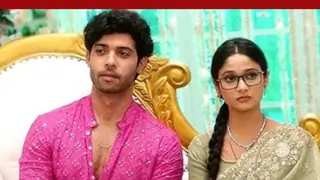It's often debated that Duryodhana was the rightful heir to the throne because he was the eldest son of the reigning king and the Pandava camp's claim is rejected.
However, one must remember that Dhritrashtra was ruling as a regent in the crowned king Pandu's absence. Also, merit trumped birth/age in the Kuru dynasty. That's precisely the reason behind Pandu's coronation despite Dhritarashtra being the elder brother.
In the next generation, we behold the revered and learned elders favouring Yudhisthira over Duryodhana.
When Pandu accidentally killed the rishi and went to do penance with his queens, Dhritarashtra was appointed the regent and was supposed to make way for the next in line.
The pandava claim is said to be weakened by the fact that they weren't Pandu's biological sons. This claim holds no water because if we go by it, Dhritarashtra himself would lose claim because biologically he was Vyasa's son. Niyoga was accepted in the Dwapar age as evident in the epic.
Now, let's read the hollowness of Duryodhana's claim mouthed by Dhritarashtra himself.
"In this way also, O Bharata, though I am the eldest, yet being defective of a limb, I was excluded from the kingdom by intelligent Pandu, no doubt, after much reflection. And Pandu himself, though younger to me in age, obtained the kingdom and became king. At his death, O chastiser of foes, that kingdom must pass to his sons. When I could not obtain the kingdom, how canst thou covet it? Thou art not the son of a king, and, therefore, hast no right to this kingdom. Thou, however, desirest to appropriate the property of others. High-souled Yudhishthira is the son of a king. This kingdom is lawfully his. Of magnanimous soul, even he is the ruler and lord of this race of Kuru. He is devoted to truth, of clear perception, obedient to the counsels of friends, honest, loved by the subjects, kind to all well-wishers, master of his passions, and the chastiser of all that are not good. Forgiveness, renunciation, self-control, knowledge of the scriptures, mercy to all creatures, competence to rule according to the dictates of virtue, of all these attributes of royalty exist in Yudhishthira."
The Mahabharata
Book 5: Udyoga Parva
Kisari Mohan Ganguli, tr.
[1883-1896]
In the regent ruler's own words, neither he nor his son had any right over the throne. Still, the duo got Hastinapura while a barren land was handed over to the Pandavas. But Duryodhana's envy knew no limits.
Lastly, I'd like to point out a vital difference between Yudhisthira and Duryodhana. The former's best quality was his ability to forgive. Choked by desolation, he was inconsolable post the war. Duryodhana, on the other hand, seeked pleasure in the miseries he subjected the Pandavas and Draupadi to. Did he care for his subjects before going for the war? He didn't.





























